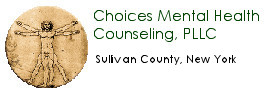Submitted by tomrue on
By Barbara Manco NP, MSN, RN
(Posted with permission)
Sleep takes up a third of our life, improves our health and well being. The average individual needs 7-8 hours of sleep. Difficulties with sleep affect our ability to function at our best level. Sleep problems range from difficulty falling asleep, staying asleep or waking early and being unable to return to sleep. Sleep is a subjective symptom so the quality of sleep may be nonrestorative to the individual. Daytime fatigue and poor attention span may follow insomnia along with irritability and increase risk for medical & mental disorders.
Individuals admitted to Addiction Treatment Facilities have higher then average rates of insomnia. Insomnia is associated with mental & medical disorders with the most common mental issues being depression, anxiety, and PTSD. Medical issues can include chronic pain, heartburn, asthma, thyroid & cardiac conditions and more. Treatment of underlying disorders can improve sleep status. Insomnia has been linked to increased relapse rates and with withdrawal syndromes. Alcohol and other abused substances can negatively affect sleep patterns. Different approaches can be utilized such as sleep hygiene education, medications, cognitive behavioral approaches (talk therapy), acupuncture and exercise.
The following sleep hygiene tips may help increase the recovering individual’s chances at sleeping soundly:
- Avoid use of stimulants such as caffeine (found in coffee, soda, tea, chocolate) and nicotine for at least 8 hours before bedtime.
- Bedrooms should be dark, quiet with comfortable temperatures and be reserved areas for sleeping and sex only. No bill paying or TV watching if it interferes with sleep. Relaxing music can be used if promotes sleep in the individual.
- A regular pattern of sleep-wake cycles should be maintained, to bed and up at the same time every day. Nothing intense toward bedtime to promote relaxation.
- Heavy meals at bedtime should be avoided; a light snack such as warm milk or decaffeinated tea may aid sleep.
- Regular exercise promotes sleep but should be done 3-4 hours prior to bedtime.
- Warm baths may aid sleep but avoided to close to bedtime if stimulating.
- Daytime naps should be early in the day or avoided if they interfere with falling asleep. Keeping a sleep log to track difficulties may be helpful.
- Go to bed when tired and if not asleep in 30 minutes go to another area to read or do quiet activity until drowsy.
- Meditations at bedtime are helpful to help decrease anxiety and promote relaxation that may increase ability to fall sleep. Think of peaceful serene places.
- Medications may cause sleep problems or transient drowsiness during the day so remember to report your difficulties with sleep to your primary care provider and/or mental health professional.
Relaxing Multimedia Files
